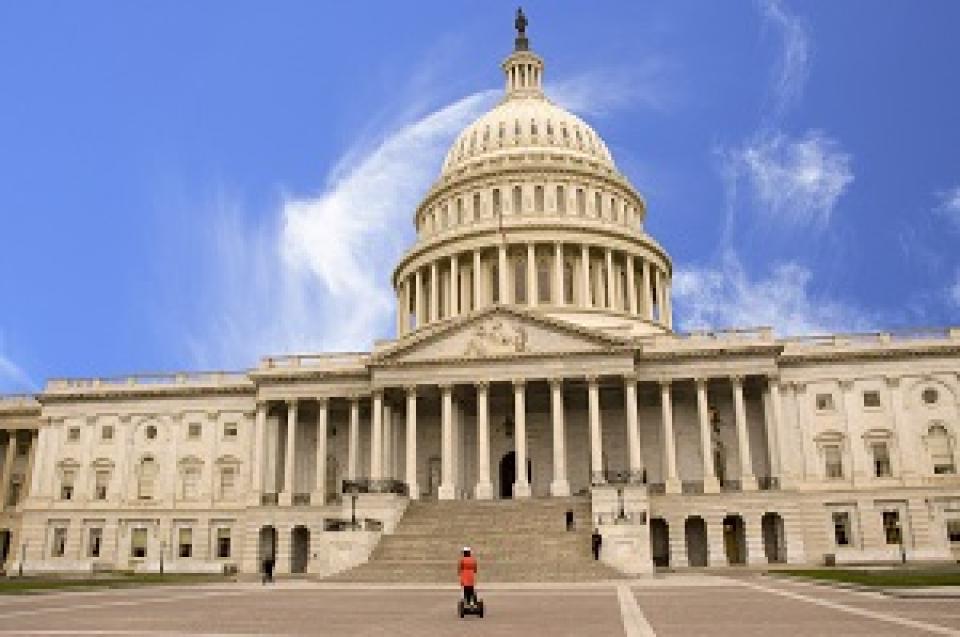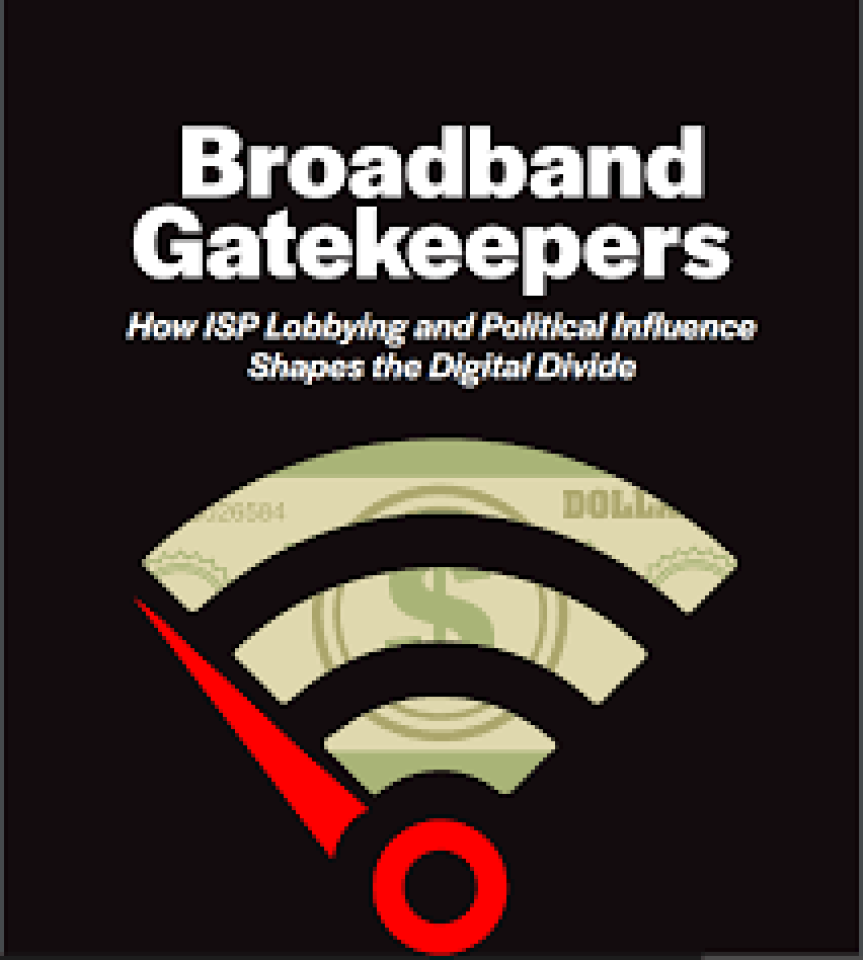
With an unprecedented opportunity for local communities to build their own ubiquitous high-speed Internet infrastructure, a new national organization has been formed to advocate on behalf of municipal broadband initiatives and to give local governments a seat at the table as federal and state officials craft legislation and grant programs to close the digital divide.
Today, at the Broadband Communities Summit 2022 in Houston, the group’s founding members held a press conference to announce the birth of the American Association of Public Broadband (AAPB).
“We were formed by a group of municipal officials in order to advance advocacy efforts for public broadband and to make sure they have a voice in Washington and in all 50 states,” said AAPB board member Bob Knight.

Knight went on to explain that while AAPB will be advocating for municipal solutions to local connectivity challenges, “we are model agnostic, whether you want to partner with a large ISP (Internet Service Provider), build your own network, or form a public-private partnership.”
A ‘Voice in the Conversation’
Noting that AAPB will work closely with ally organizations and industry groups, AAPB was founded primarily “because municipal networks didn’t have much of a voice in the conversation around broadband funding in the American Rescue Plan Act or the Infrastructure Investment and Jobs Act,” even as there was significant lobbying efforts on behalf of the big telecom companies.
AAPB Secretary Kimberly McKinley added that lawmakers are often assailed with stories about municipal broadband failures but that it was important for lawmakers to hear the whole story.
There are a lot of cities out there who run these networks successfully. And we want to be a place where local officials can go and learn the do’s and don’ts, the missteps, and challenges. We are not advocating that you can only do muni broadband, but that there should be an option. Ultimately, it’s about giving communities the option to take local control.
AAPB raised $50,000 in funding commitments from government agencies and private donors within the first half-hour of announcing the formation of AAPB.
In addition to offering municipalities a unified voice in the advocacy of locally-controlled, publicly-owned broadband networks – as well as expert advice on broadband policy – AAPB will also provide its members with analytical resources to help track federal and state legislative developments and how those impact local communities’ prospects for expanding broadband access and achieving other digital equity goals. That will be particularly useful as we are seeing legislative language crop up in various states, often under the radar, that erect barriers to municipal broadband to protect monopoly incumbents from competition.

While organizations such as the Fiber Broadband Association, the Coalition for Local Internet Choice (CLIC), and NATOA have been vital in cultivating an ecosystem for local Internet choice, AAPB will have a more focused role by helping to facilitate better communication between local, state, and federal officials as, historically, lawmakers have almost exclusively been advised by the lobbyists and trade associations who represent the monopoly interests of Big Telecom.
Knight noted that what will set AAPB apart from similar organizations is that “our board is comprised of municipal officials. There are no vendors on our board or incumbents. This is an organization for public officials responsible for broadband projects.”
Another distinguishing feature of AAPB, Knight added, is that AAPB's President, Vice President and Secretary are all talented tech-savvy women steering the organization in a field where women have historically been underrepresented.
Organizational Priorities
When asked what the priorities of the organization will be, Knight, McKinley and AAPB Treasurer Scott Menhart agreed that right out of the gate they will need to put together a 50-state strategy and a Washington strategy, noting that the Big Telecom industry spends about $8 million a week lobbying in the nation’s capital.
Another top priority is hiring a full-time executive director who will not only be responsible for raising money for the organization, but also coordinating with state broadband offices who recently have been losing staff to private industry and will need technical expert advice to help ensure that municipalities are not “legislatively harmed” when it comes to accessing Rescue Plan or federal infrastructure funds.
“We really want to be an educational resource on what works and what are good models because when cities and towns are looking at broadband the two big questions are: Can we do it and how can we do it? We hope to solve those two key issues,” Menhart said.
McKinley added they would also like to see more states remove the anti-municipal broadband barriers that still exist in 17 states across the nation.
“It will be small victories initially,” Knight continued. “The lobbying has been done in DC. Now, the game is being played in the states so we need to hit the ground running.”
An Expert League of Their Own
The current AAPB board of directors are all affiliated with publicly-owned networks and bring an intimate knowledge of what it takes to build and operate successful municipal networks. The board will be led by AAPB President Angela Imming, Director of Technology and Innovation for the city of Highland, Illinois – home to Highland Communication Services (HCS), which has been serving that southwest Illinois city of 10,000 residents with fiber-to-the-home service for over a decade now. (You can listen to our Community Broadband Bits podcast interview with Imming and how the city overcame its early challenges in building and expanding the network here).
Angela Bennink, General Manager for the Kitsap Public Utility District in the state of Washington, will serve as AAPB’s Vice President. She brings with her deep experience in the building and operation of open access networks, as well as an acute understanding of the unintended anti-competitive consequences that can come from state laws that restrict publicly-owned networks.
Serving as Secretary of the AAPB board is Kimberly McKinley, Chief Marketing Officer for UTOPIA Fiber, the largest open-access network in the nation which recently announced a new partnership with the Golden State Connectivity Authority (GSCA) to design, build, and operate a new open access fiber-to-the-home (FTTH) network across the 38 rural counties in the state of California.
AAPB’s Treasurer is Scott Menhart, Chief Information Technology officer for Traverse City Light & Power (TCL&P), which recently launched a municipal fiber-to-the-home service in that northern Michigan town of 15,000.
During the press conference, Menhart recalled how several years ago there was a legislative proposal that sought to ban municipal networks in Michigan. Although an ad-hoc coming together of municipal officials in the state were able to ultimately defeat that proposal, it was an example of how useful an organization like AAPB would have been in educating state lawmakers even before such proposals were even floated.
The five-member board is rounded-out by Bob Knight, Commissioner of Economic and Community Development for the town of Ridgefield, Conn. He will serve as a Member-At-Large. As President and CEO of the strategic PR and digital marketing firm Harrison Edwards, Knight has a wealth of information on numerous publicly-owned and operated networks across the country. Most recently, he has been working with the Southern Tier 8 Regional Board in the pursuit of a major middle-mile fiber network expansion that aims to connect major employers and drive FTTH expansion in four rural Upstate New York counties, as well as a fixed wireless project to bring high-speed Internet connectivity to three New York towns who do not currently have access to broadband.
Membership Has Its Privileged Connectivity
Voting members will be limited to government agencies and employees who are either planning to build, or who currently own or operate a municipal network. Government agencies can join for an annual fee of $1000, while individual government employees can join for $300.
AAPB will also offer non-voting memberships. Nonprofit and advocacy organizations can join for $1,000, while vendors can get a Gold membership for $5,000 or a Premier membership for $10,000.
The Gold membership includes: branding on all of AAPB marketing material and access to quarterly membership meetings.
The Premier membership offers: branding on all of AAPB marketing material, access to quarterly marketing meetings, and exclusive networking events, both digital and in-person.
Membership forms can be filled out here.
Follow AAPB on Facebook here or the organization’s YouTube channel here. You can also find AAPB’s LinkedIn page here or you can follow on Twitter here.
Inline image of U.S. Capitol Building courtesy of Wikimedia Commons, Attribution-ShareAlike 3.0 Unported (CC BY-SA 3.0)







